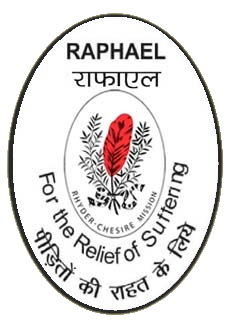Cause Area
Secondary Sectors
Financials
-
2020
Total IncomeRs.35,057,466Total ExpensesRs.42,927,838Non Program ExpensesRs.3,434,227Program ExpensesRs.39,493,611Tip: Click on any value above to exclude it. -
2021
Total IncomeRs.51,604,405Total ExpensesRs.37,019,928Non Program ExpensesRs.3,196,079Program ExpensesRs.36,754,913Tip: Click on any value above to exclude it. -
2022
Total IncomeRs.56,777,241Total ExpensesRs.48,569,937Non Program ExpensesRs.3,383,449Program ExpensesRs.44,951,545Tip: Click on any value above to exclude it. -
2023
Total IncomeRs.59,664,158Total ExpensesRs.53,822,113Non Program ExpensesRs.3,767,547Program ExpensesRs.50,054,565Tip: Click on any value above to exclude it. -
2024
Total IncomeRs.58,461,253Total ExpensesRs.48,329,227Non Program ExpensesRs.7,998,638Program ExpensesRs.40,330,589Tip: Click on any value above to exclude it.
Geographies Served
Programs
-
Special Education
District
Dehradun
States
Uttarakhand
The objective of the SE Programme is to generate awareness about Persons with Disability (PwD) through advocacy; identify and assess children and young adults with intellectual & other developmental disabilities (such as, but not limited to Autism, Cerebral Palsy & Down Syndrome); educate & train children with disabilities (CwD) to realize their potential and facilitate their rehabilitation in the family and community. SE activities are carried out both on and off campus. The focus on campus is on functional academics; language and communication skills; and the acquiring of daily living, house-hold, domestic & vocational skills. The emphasis, throughout, is on ‘inclusive’ learning and activity.
-
Tb Hospital
The objective of the TB Control Programme is to assist the Uttarakhand State Government in the control –detection, treatment and prevention– of TB. RAPHAEL is a government designated Directly Observed Treatment Short Course (DOTS) Centre. Its TB Control Programme is run in accordance with guidelines laid down in the National Tuberculosis Elimination Programme (NTEP). Its facilities include a 20 (12 male; 8 female) bed hospital; an Out-patient Department; and a clinical laboratory capable of the full range of investigations for TB. Patients detected with TB are registered and given a unique NIKSHAY Identity Number. Those who are able to return to their homes are provided with a ‘referral’ & free medication for a limited period. They are then instructed to report to their local DOTS centre to continue with their treatment in accordance with the RNTCP. Only those patients suffering from acute tubercular infection & ‘shared symptoms’ and deemed unfit to travel are admitted in the hospital. They are discharged with a referral & medication only after their general condition improves. It is this latter ‘in-patient’ facility that makes RAPHAEL’s TB control programme unique. Whereas medicines for the treatment of TB are provided by the district medical authorities free of cost the expenditure incurred on supportive treatment (to include diet) of patients admitted in the hospital is borne by RAPHAEL.
-
Life Long Care
District
Dehradun
States
Uttarakhand
The Life-long Care Programme is a legacy of the past. When RAPHAEL first started it began by caring for Leprosy Cured Patients (LCP) rescued off the streets. Over the years, the civil administration has found it convenient to entrust RAPHAEL with the care of other PwD who have nowhere to go. Their custody makes it obligatory for RAPHAEL to acquire legal rights of guardianship in each case and provide each individual with the necessities of accommodation, food, clothing, medical care and, where possible, occupational therapy.
Impact Metrics
-
No. of Assessments
Year-wise Metrics- 2019-20 83
- 2020-21 24
- 2021-22 129
-
No. of Admissions
Year-wise Metrics- 2019-20 44
- 2020-21 12
- 2021-22 30
-
No. of Training Programs
Year-wise Metrics- 2019-20 28
- 2020-21 43
- 2021-22 32
-
No. Out Patients
Year-wise Metrics- 2019-20 2407
- 2020-21 371
- 2021-22 351
-
No. of Inpatients
Year-wise Metrics- 2019-20 251
- 2020-21 308
- 2021-22 57
-
Patients Detected With Tb
Year-wise Metrics- 2019-20 189
- 2020-21 35
- 2021-22 17
-
Given Care & Shelter
Year-wise Metrics- 2019-20 28
- 2020-21 27
- 2021-22 27
-
No. of Assessments
Year-wise Metrics- 2019-20 83
- 2020-21 24
- 2021-22 129
-
No. of Admissions
Year-wise Metrics- 2019-20 44
- 2020-21 12
- 2021-22 30
-
No. of Training Programs
Year-wise Metrics- 2019-20 28
- 2020-21 43
- 2021-22 32
-
No. of Inpatients
Year-wise Metrics- 2019-20 251
- 2020-21 308
- 2021-22 57
Leadership Team
-
Mrs Priyo Lall
Chief Executive Officer
-
Lt. Col. Pasha Biswas (Retd.)
Administrative Officer
Demographics & Structure
-
Organisation Strength
15
-
Diversity Metrics
57% women
-
Organization Structure
Yes
Registration Details
-
PAN Card
AAAAR2808Q
-
Registration Number
564/1962-63
-
CSR Form 1
CSR00003448
-
80G
AAAAR2808QF20211
-
12A
AAAAR2808QE19982
-
FCRA
347900103
About
-
Headquarters
Dehradun, Uttarakhand
-
Since
1959
Impact
Raphael has touched over 40,000 lives, reached 3,000 children with disabilities, cured 30,000 tuberculosis patients, and trained 13,000 resource persons.
Vision and Mission
Vision: RAPHAEL’s endeavour is to alleviate suffering. Mission: RAPHAEL’s mission is to assist in the: Rehabilitation of children with intellectual and associated disabilities; Control of Tuberculosis (TB); Life-long care of persons with disabilities who are rejected by society.
Political & Religious Declarations
-
Political Affiliation
-
Religious Affiliation
Location
-
Headquarters
Raphael Ryder Cheshire International Centre, P.Box -157 End Mohini Road, Trans Rispana Nadi
Directions, Dehradun, Uttarakhand -
Offices in Cities
Other Details
-
Type
Non-profit
-
Sub Type
Society
Technology Adoption
-
SOC 2 Compliant
No
-
Financial Management
-
Beneficiary Management



